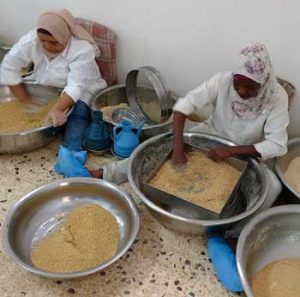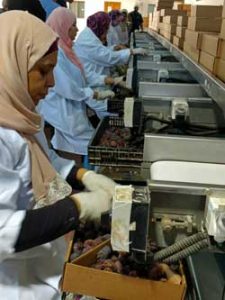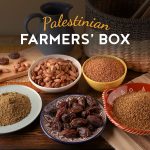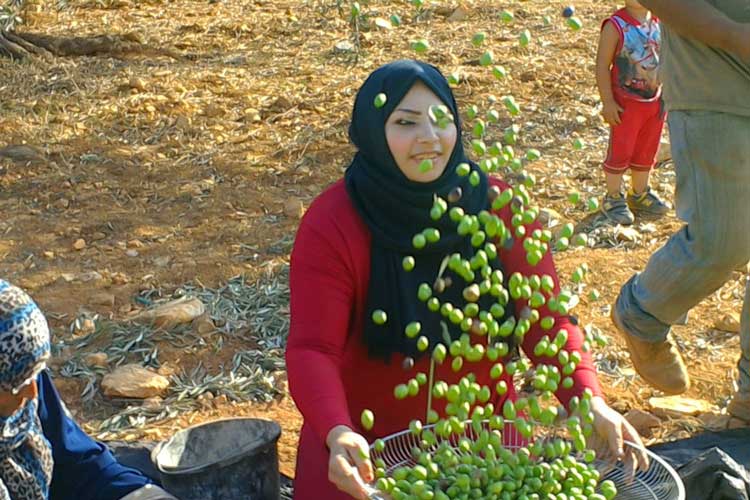Editor’s note: Women of the ELCA is beginning a new partnership with Equal Exchange, Fair Trade cooperative headquartered in West Bridgewater, Mass., with facilities in Portland, Ore., Saint Paul, Minn., and Cleveland, Ohio. More details will come later.
by Susan Sklar and Rob Everts
Last October, a group of us from Equal Exchange traveled to the West Bank to visit our Palestinian suppliers of organic extra virgin olive oil.
The odds are stacked against Palestinian farmers. They work land that is dry as a bone. Though olive trees can produce olives with very little water, other crops such as wheat, almonds, and dates are limited due to the severe water shortage.
As we met with farmers and toured facilities, the initiatives managed by our counterpart, the Palestinian Agricultural Relief Committee (PARC) impressed us. PARC, an NGO (non-governmental organization), works with Palestinian farmers in 40 agricultural cooperatives made up of about 20 to 80 members each.
PARC’s main mission is to provide hope for Palestinians in the West Bank and Gaza. It offers economic sustainability and independence for small farmers who suffer water and land restrictions because of the Israeli occupation of the West Bank.
While in the West Bank, we visited several projects and facilities. Some of those included:
Women’s couscous cooperative: Jericho

The Machtas Couscous (or “Maftoul”) Cooperative is made up of 30 members from three generations: ages 20-70. Women are trained to make couscous, a Palestinian staple. The co-op negotiates costs, prices and quantities. Income is tied to productivity, and members determine their own schedules, which can be flexible. Most work from 7 a.m. to noon when they go home to be with their families and friends. The women earn additional income by making Za’atar spice mix, fumigating and shelling almonds, and working at the date-filling stations.
Date-filling station: Jericho

Dates are an important crop for West Bank farmers. In the 90s, PARC purchased date palms for $100 each and sold them to Palestinians for $20. In 2001, farmers produced just a few hundred pounds of dates. By 2009 the amount had increased to thousands, and they needed a more modern “filling station” to wash, dry, sort and pack the dates. They now have a beautiful new plant with sophisticated and more computerized systems.
Olive oil press: Salfeet
We visited a modern olive oil press at the Mazare’ Al Noubani cooperative near Salfeet. There are 86 members of the co-op who use the press. Olives are ideally pressed for oil within an hour of being harvested. A good olive tree produces about 16 to 20 liters of oil.
An almond cooperative: Jenin
We visited Jenin where almond trees were introduced by PARC as a part of a land reclamation project 10 years ago. Now the Aqqaba Almond Cooperative co-op has 87 members. The co-op grows almonds on more than 200 hectares (494 acres). After experimenting with irrigation in the dry season, the productivity of the almond trees more than doubled.
 Order your farmers’ box and olive oil
Order your farmers’ box and olive oil
Equal Exchange is offering a Palestinian Farmers’ Box of five products from cooperatives they visited. Show your support of Palestinian farmers by pre-ordering a box by March 31. You can also purchase organic extra virgin olive oil.
Susan Sklar is manager of the interfaith program at Equal Exchange, and Rob Everts is president of Equal Exchange. Read the original Equal Exchange blog here. Photos from Equal Exchange.
